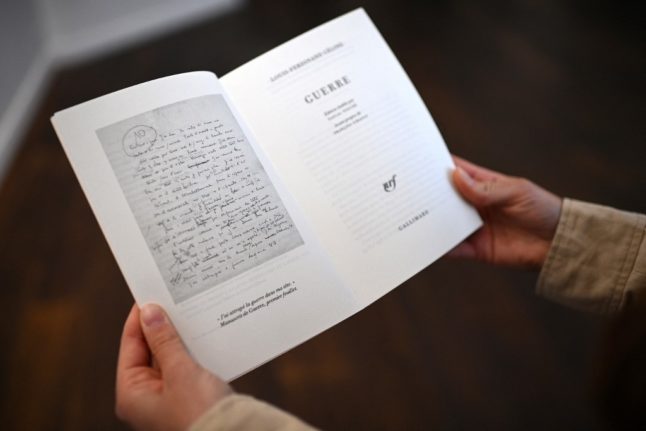Sara Danius, the head of the Swedish Academy which picks the Literature laureates, told The Local just after the announcement on Thursday that when she would later call Dylan to tell him of his win, she would say: “Hello, this is Sara Danius calling from Sweden. Do you have a second?”
But neither she nor anyone else from the Academy have managed to speak directly to Dylan himself yet.
“The Academy has spoken to Dylan's agent and his tour manager,” the Academy's chancellor Odd Zschiedrich told the AFP news agency.
“It's happened several times – even in modern times – that we haven't been able to speak to the laureate immediately,” he added.
Dylan's silence could prove embarrassing for the Academy, which has faced some criticism for its decision to award the prize to a songwriter for the first time – although reactions from the literary world have been mostly positive.
As The Local reported earlier on Friday, the new poet laureate of rock'n'roll played to a packed house in Las Vegas on Thursday night, hours after seeing off favourites including Japan's Haruki Murakami and Britain's Salman Rushdie to become the first American to win the literature Nobel since Toni Morrison in 1993.
But fans hoping for a gushing response to the win were disappointed – true to his usual taciturn form, Dylan uttered not a word between songs, leaving the world to keep guessing what he thought about his elevation to the pantheon of literature.
According to the Washington Post, which contacted people close to the 75-year-old star: “Dylan remained silent throughout the day about the award.”
One of his friends, singer Bob Neuwirth, told the Post: “He may not even acknowledge it.”
Each year, Nobel laureates are invited to Stockholm on December 10th to receive their award from King Carl XVI Gustaf of Sweden and give a speech at a banquet.
But for the moment the Academy does not know whether Dylan plans to come or not.
In 1964 the French philosopher Jean-Paul Sartre refused the literature prize as soon as he was told he had won it, rejecting the 273,000 kronor prize awarded at the time.
In 2016 Dylan stands to claim eight million kronor ($906,000), which to be fair, he probably does not need.
WATCH: the man who discovered Dylan reacts to his Nobel Prize win:



 Please whitelist us to continue reading.
Please whitelist us to continue reading.